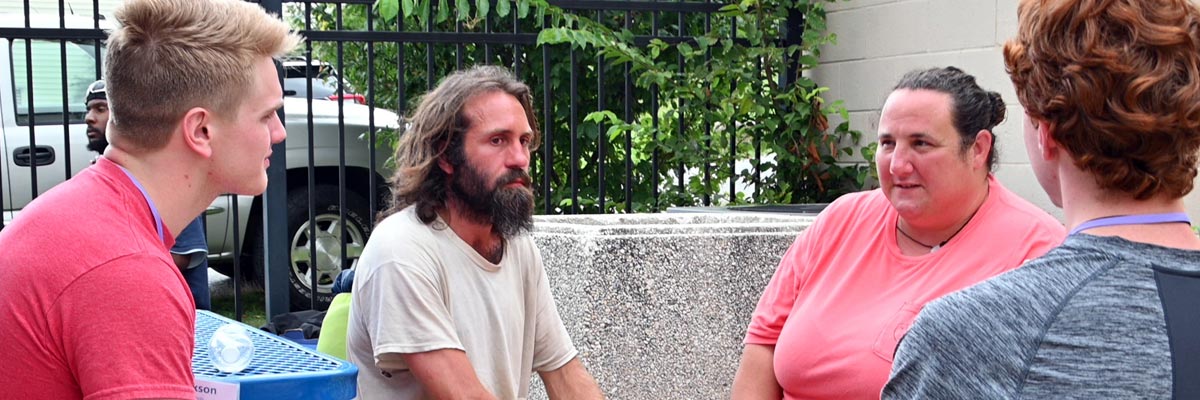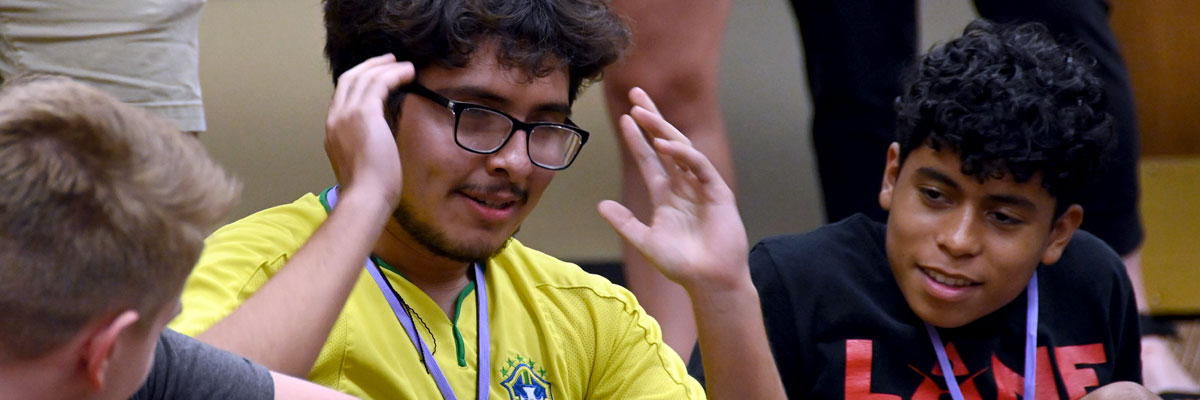Official Website of the
Catholic Diocese of Little Rock
Mass is ‘bridge’ that allows participants to enter God’s timelessness
Published: November 19, 2005
By Father Erik Pohlmeier
In preparation for the Eucharistic Congress last month a number of questions and answers about the Mass were printed in Arkansas Catholic. One of the questions not included was, “Is the Mass really a sacrifice?” That is a very important question but one that could not be answered in the few lines available at the time. This article offers the opportunity to explore that question. The “Catechism of the Catholic Church” teaches, “The sacrifice of the Christ and the sacrifice of the Eucharist are one single sacrifice.” (1367) The Eucharist makes present the sacrifice of Jesus on the cross. No doubt this is a bold claim and one that has often been refuted by those who oppose Catholic theology. This teaching, however, is one deeply rooted in Scripture. It begins with the Last Supper and the command of Jesus, “Do this in memory of me.” (Luke 22:19) The word used to describe this remembering is anamnesis. Memory in this sense is more profound than just recalling a past event. Anamnesis is a kind of remembering that reaffirms the covenant between God and his people; it is a remembering that actually makes present the God who calls us to share his life. For Jesus to say, “Do this in memory of me,” is to include, “and when you do, I will be present with you.” St. Paul understood the importance of this sacrifice. He had particular concern that the community of Corinthians was in danger of forgetting the sacrifice of Jesus for sin. In First Corinthians 11:26 he reminds them, “For as often as you eat this bread and drink this cup you proclaim the death of the Lord until he comes.” As often as the Mass is offered we proclaim the death of the Lord, we proclaim his sacrifice that is our salvation. Another key biblical passage is found in the Book of Hebrews. In its treatment of the priesthood Hebrews identifies Jesus as the eternal high priest and describes his priesthood as a “priesthood that does not pass away. (7:24) The sacrifice of Jesus the priest is that of his own body and it is sacrifice offered “once for all.” (7:27) There are some who take that passage to mean that on the cross 2,000 years ago Jesus offered himself totally and all was complete. They say that to offer sacrifice today is to offer Jesus on the cross over and over again. This is not what the Catholic Church teaches. The sacrifice of Jesus must be understood in God’s time, not in ours. That is to say, with God there is no time. God does not experience things in a succession of 24-hour periods. To God all events of the past, present and future are one big picture that exists together in one eternal timelessness. So, that means the sacrifice of Jesus offered once for all is not happening over and over again, but in an ongoing, continual manner according to our time. It is one continual offering of the Son to the Father for our salvation. The Mass, then, is a bridge. It is a place where time stops and we enter the timelessness of God. We become a part of the continual offering of Jesus to his Father, not just dying on the cross but the whole Paschal Mystery, the dying and rising, the new life of the new covenant. Because of the sacrifice of the Mass we share in the life of heaven even while on earth. It is a place where time stops and we become a part of the very life of God. Father Erik Pohlmeier is the theological consultant for Arkansas Catholic and pastor at St. John the Baptist Church in Hot Springs.









